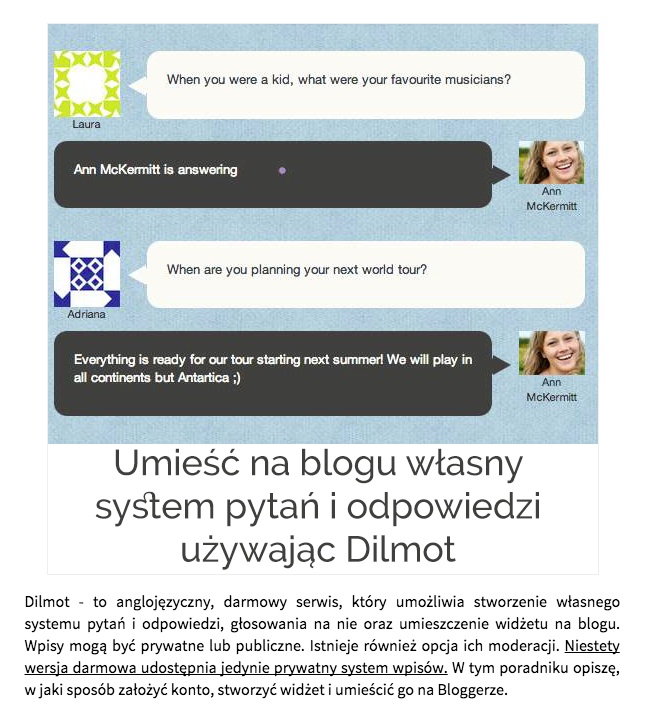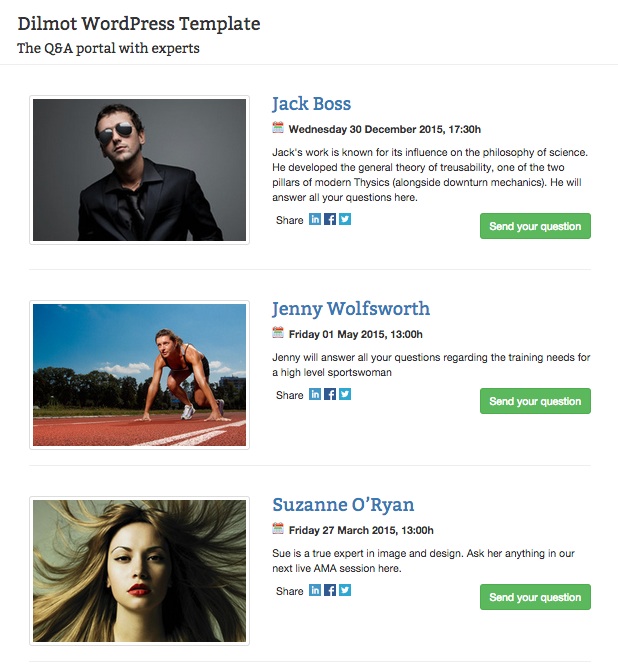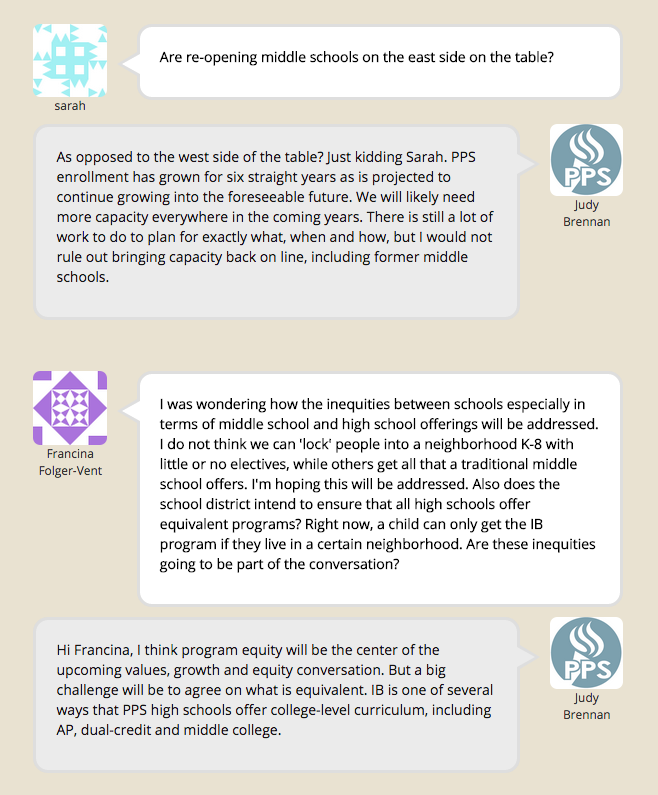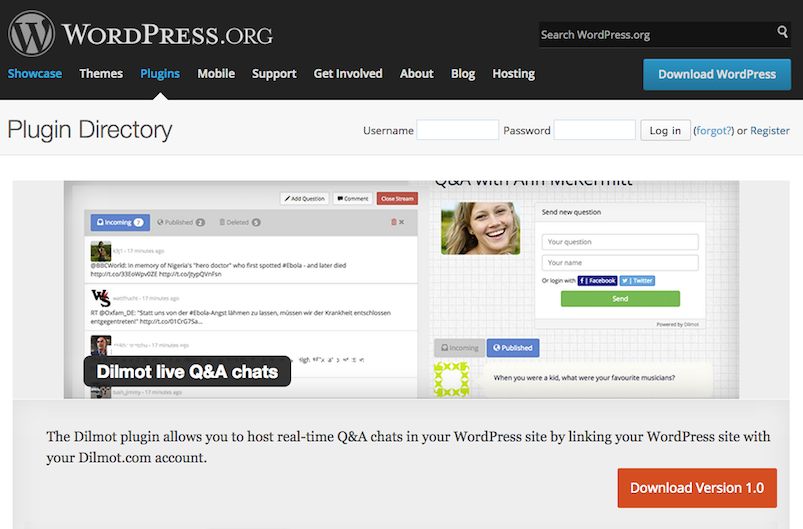You probably have read about Mark Zuckerberg’s live Q&A session published in Facebook.
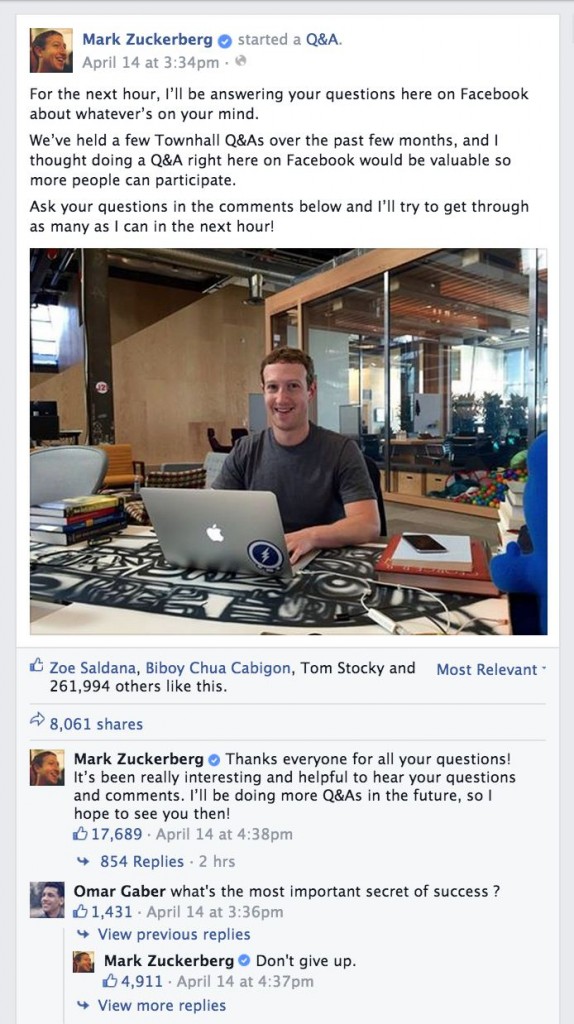
This live Q&A was made by Mark Zuckerberg
It was a complete success. You can make your own Q&A in Facebook using Dilmot embeded live Q&A
Highlights of Zuckerberg’s Q&A, as pointed out by this Adweek article:
In response to a question from user Brian Ka about his vision for Oculus:
Our mission to give people the power to experience anything. Even if you don’t have the ability to travel somewhere, or to be with someone in person, or even if something is physically impossible to build in our analog world, the goal is to help build a medium that will give you the ability to do all of these things you might not otherwise be able to do. This will be incredibly powerful as a communication medium, as well. Just like we capture photos and videos today and then share them on the Internet to let others experience them, too, we’ll be able to capture whole 3-D scenes and create new environments and then share those with people as well. It will be pretty wild.
TechCrunch senior writer Josh Constine asked:
What’s your opinion on the net-neutrality implications of Internet.org providing free access to only a select few “basic Internet services” in the developing world, while other services require a data plan, and how Facebook/Internet.org is in the position to choose what services are free?
Zuckerberg responded:
I think net neutrality is important to make sure network operators don’t discriminate and limit access to services people want to use, especially in countries where most people are online. For people who are not on the Internet, though, having some connectivity and some ability to share is always much better than having no ability to connect and share at all. That’s why programs like Internet.org are important and can coexist with net-neutrality regulations.
Branson asked Zuckerberg what the biggest benefits of trying to connect the rest of the world were, and he replied:
Thanks for stopping by, Richard Branson!
When we talk about connecting the world, most people talk about the clear benefits to all of the people who will get Internet access and don’t have it today. Those benefits are many: access to education, health information, jobs and so on. Many people estimate that for every billion people we connect, we’ll raise more than 100 million out of poverty.
But one thing that we often overlook in this discussion is how everyone who is already connected will benefit from having everyone online.
Think about how many brilliant entrepreneurs there are out there who have great ideas and the will to change the world, but just lack basic tools to do so today. If you go by the population, almost two-thirds of these entrepreneurs don’t have Internet access today. Once they get connected, we may have three times as many good ideas and amazing new services built that will benefit everyone around the world.
Shakira asked how technology can best be used as an education tool for people in disadvantaged communities, and Zuckerberg said:
Thanks for the question, Shakira!
I’m very excited about personalized learning — giving everyone the ability to use technology to learn what they’re most interested in and at their own pace. There are some great new schools experimenting with different personalized learning models and getting great results. I’m supporting some of those schools through my personal philanthropy, and Facebook is also helping to build open-source software to power some of these tools.
Finally, in response to user Dan Higgins’ question about how many hours per day he works, Zuckerberg answered:
That depends on what you count as work. I spend most of my time thinking about how to connect the world and serve our community better, but a lot of that time isn’t in our office or meeting with people or doing what you’d call real work. I take a lot of time just to read and think about things by myself. If you count the time I’m in the office, it’s probably no more than 50 to 60 hours per week. But if you count all the time I’m focused on our mission, that’s basically my whole life.
Readers: What would you like to have asked Zuckerberg?
